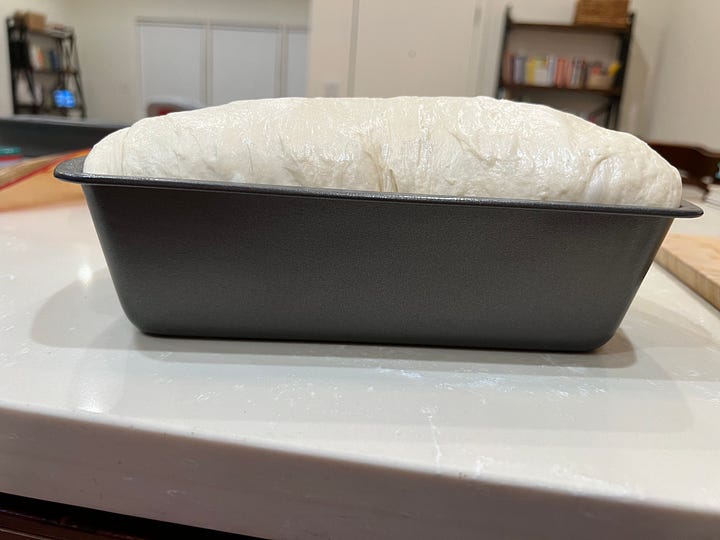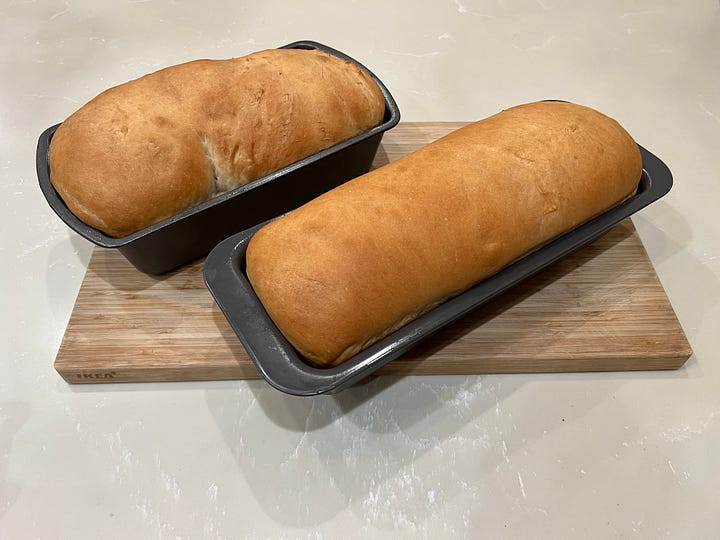Write A Syllabus for Your Semester
How to make progress on the stuff that matters, motivated by your vision, mission, and core values.

"Plans are worthless, but planning is everything." - Dwight Eisenhower
If you've been around me for any period of time, you've likely heard this one. The spring semester at Harvey Mudd starts today and so this last week I've been thinking about the months ahead and where I want to focus my efforts.
It's a natural human impulse to resist planning. I often hear this complaint from the students I advise on Clinic teams. At the beginning of the year, they are given a one-page document from the project liaisons with the expected deliverables for the year. Much of the first days and weeks of the project are spent trying to flesh out the project and understand how it can be broken down into individual steps. But then comes the tricky part — assigning a timeline.
The reasons for resisting a year-long plan with specific dates and expected times are many, but the most common reason stems from the fact that there are too many unknowns. How could you possibly expect to accurately map out a year-long project without a clear sense of the time each task will take or even how many tasks there might be?
You can't. But that's besides the point.
Planning with incomplete information
The whole aim of the process of planning is to map out where you are going and make an initial draft of the project and its scope. Sort of like planning a roadtrip and breaking it down into step-by-step directions. For a roadtrip of any reasonable length you can't accurately predict what might get in your way like traffic or weather. But the simple process of making an initial plan and then working from there is extremely helpful.
Whenever you start a class, one of the first documents that you get is the syllabus. The syllabus lays out the motivation for the course, administrative details, learning outcomes, schedule, assignments with their deadlines, suggested ways to succeed, and ways to get help. The syllabus is the contract between the instructor and the student.
This week I will show you how in about 30 minutes you can write a syllabus for your semester—a contract to yourself, outlining your goals for the semester and detailing the processes you will use to achieve them. Whether you want to call it a syllabus or a strategic plan, I'm willing to bet that a few minutes of work planning will pay massive dividends.
Ready? Get your pen and paper or open up a Word doc and let’s go. Here's the game plan:
Review and refine your vision, mission, and core values.
List your goals for the semester.
Build a system to break down your goals into achievable steps for each day.
1. Review or draft your vision, mission, and core values
The first step is to spend a few moments revisiting your vision, mission, and core values. These statements explain what makes you tick, what gets you up in the morning, and what inspires you to make a difference. Don’t worry if you don’t yet have these drafted, I’ll help you write them.
A quick aside: sometimes it can be a bit difficult to distinguish vision and mission. The way I like to think about this is that your vision is who you want to be and your mission is what you are doing to get there. Both of these are informed by your core values which are the virtues and character traits that you believe in and form the foundation of your identity.
So spend a few moments to write down a list of your core values (this list might help give you some food for thought). Then, once you have your list, ask yourself the following questions with those core values in mind.
Vision: Who do you aspire to be? In 5-10 years, who do you want to be?
Mission: What actions are you taking to help you achieve your vision?
My vision, mission, and core values as an example
Here are some recent drafts of my personal vision, mission, and core values. This vision and mission is what I see as part of my calling as a Christian to “work heartily as for the Lord, not for men.”
Vision: To be a leading engineering educator and an influential voice in the areas of whole-person learning, personal flourishing, and the prototyping mindset.
Mission: I teach students how to develop habits to lead a flourishing life, become excellent at their craft, and make an impact on their communities and society.
Values: As an educator I strive to achieve my vision by training students to:
See the world with curiosity.
Embrace the joy of the engineering design process
Build discipline through habits and practices for sustainable flourishing.
Foster humility and a sober view of their own areas of strength and opportunities for growth.
Become people of integrity and honesty with a commitment to truth.
Embrace play and humor as a way to stimulate creativity and build effective teams.
2. List your goals
Once you have reviewed your vision, mission, and core values, it's time to break them down into some specific goals. One helpful checklist for your goals is the SMART acronym:
Specific: narrow the scope to really focus in on what you want to accomplish.
Measurable: what does success actually look like? How will you measure progess?
Attainable: Is this goal reasonable for the time I've allotted it?
Relevant: Is this the right goal for moving me closer to my vision?
Time-based: Is the timeline aggressive enough without being too ambitious?
For example, you want to stay away from goals like “get better at writing.” It’s not nearly specific enough. Instead, you might consider something like “draft an initial outline of my new book with subheadings for each chapter.” This is a much more specific goal, provides metrics for success, is reasonable for the time frame of a semester, and helps move me toward my goal of writing a book.
There are lots of ways that you can categorize your goals, but one that I like are the 4 Cs that from Cal Newport: Craft, Constitution, Contemplation, and Community. See this post for more details, but the basic idea to map out the different meaningful areas of life to make sure that your goals and aspirations engage your whole person.
As you draft your goals, I would suggest no more than 2-3 goals per category for a semester. This will help to make sure your goals are reasonable and prevent you from overburdening yourself with goals that are too ambitious.
3. Use multi-scale planning to help you achieve your goals
After you have your list of goals, the last step is to set up your system for making progress on them. The way I like to do this is through Weekly Plans and Daily Time Blocking. I wrote about this a while back, but the summary is that you need to make sure that each week you outline the steps that will help you move toward the goals in your semester plan. Then, each day, you use time blocking to be proactive about making sure that you create time for the important, but non-urgent tasks you want to accomplish.
So what?
Whether you are a student just starting your semester or completely separated from the academic calendar, I think that this exercise can be valuable. My hope is that this practice of building a syllabus for your semester is a helpful tool to give you a framework to approach your work with intentionality.
And of course, your plan will break, probably within the hour after you make it, but that is besides the point. Simply having a plan at all will help you to attack your day with peace and poise.
The Book Nook
The most recent book club read was Hercule Poirot's Christmas by Agatha Christie. Another classic Christie mystery and I didn't see the ending coming at all. An enjoyable read about Hercule's mission to figure out who from the family killed the rich old patriarch. Put it on your list for a good seasonal read for next Christmas!
The Professor Is In
Today marks the start of the spring semester which is always exciting. I'm glad to be getting back into the swing of things and finding a new rhythm.
At the end of last week we spent two days in Lake Arrowhead for our department retreat at the UCLA Lake Arrowhead Lodge. It was a great time of getting to reconvene in person for our first in-person retreat since January of 2020 and spend time discussing the future of the department.
One activity that I particularly enjoyed was taking time on Thursday to do a 1-on-1 appreciation interview with a senior member of the department. We went on a 45-minute walk (ok, more like 55 minutes for us—we lost track of time and got back late) and got to know each other. It was great to learn more about why we love teaching at Mudd and share our aspirations for the department in the years to come.
After coming back from the walk, each of us took turns with our partner in front of the whole group sharing our partner's answers to the questions we discussed. It was a fun way to get to know each other more deeply and something I hope we can continue to build on this semester!
Leisure Line





This weekend I spent some time making sandwich bread (h/t Mom for the recipe!). I had tried this recipe once before but don’t think I was patient enough with the second rise before I baked it. This time around, I think I did much better. Hard to beat a slice of fresh bread with butter (not to mention the smell while it's baking!). The long IKEA loaf pan I picked up this weekend worked out pretty nicely as well (bottom right on the last photo).
Still Life
Here's a photo from the "Zen Deck" at the retreat center this past week which looks over Lake Arrowhead. Beautiful views and scenery!





Not being in school any longer (except of course for the school of life), I have to rethink this model (vision, mission, goals) in accordance with the context of my life, which is a delicate balance of work, play, family, friends, sports, duty, ministry, and self-care. I believe that I was failing miserably to implement this paradigm by the time I was in my 40s. It's time for me to give it another go and aim to succeed! Thanks for this great article.